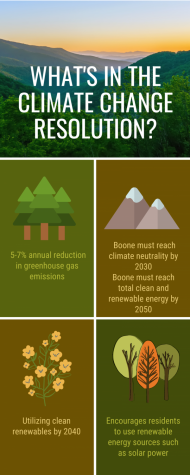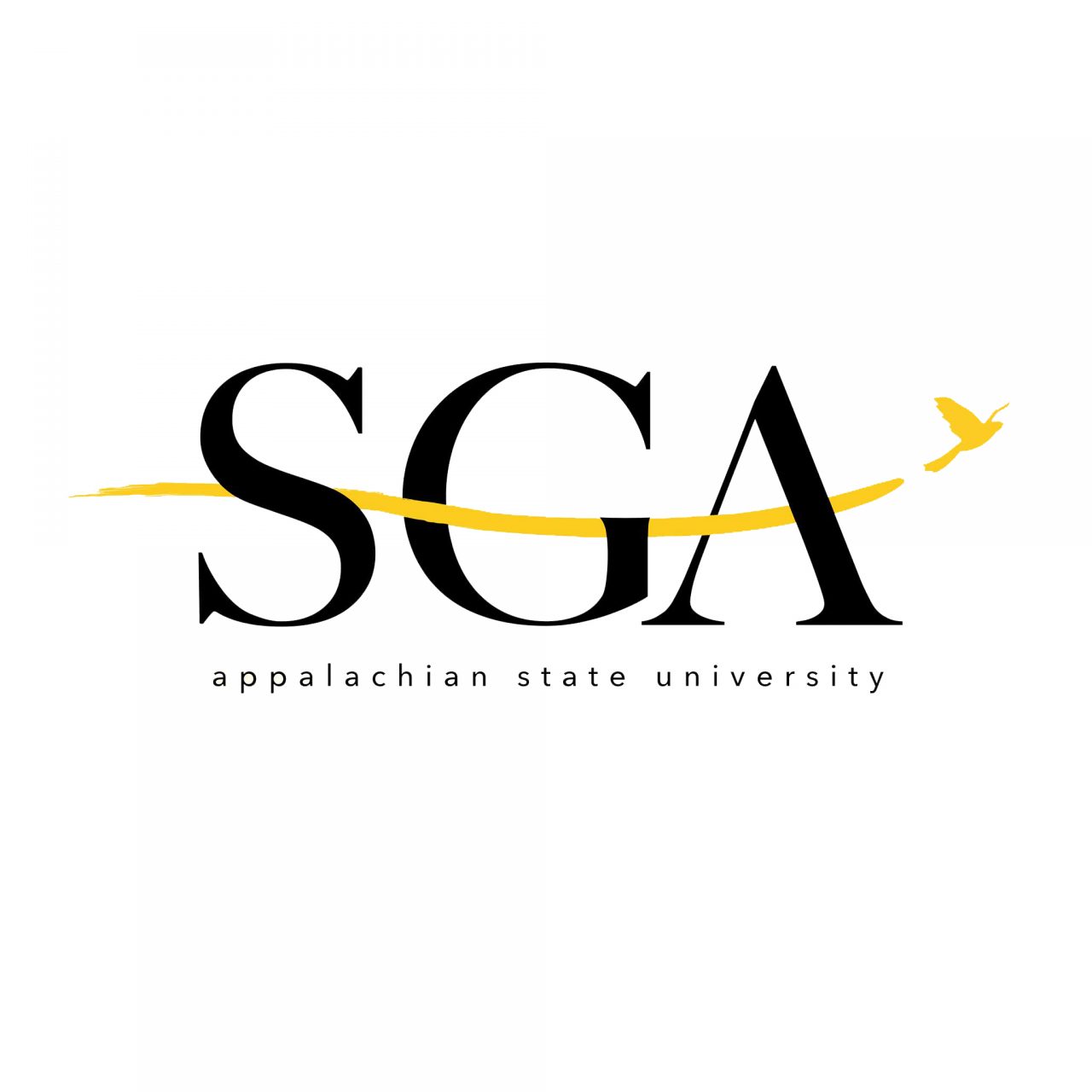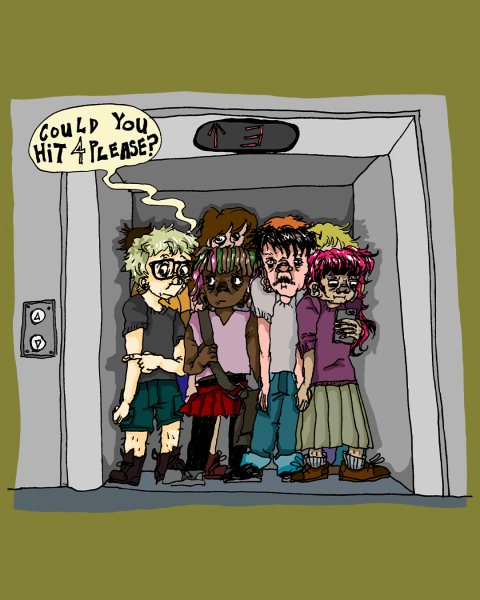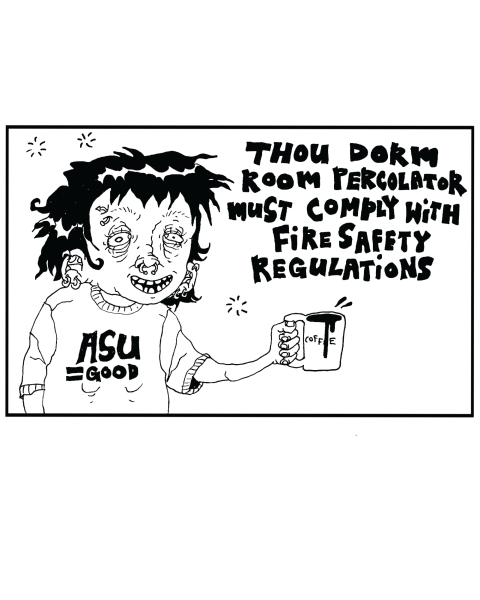Boone Town Council approves climate resolution, targets town-wide renewable energy by 2050
January 25, 2021
Boone Town Council unanimously approved a climate resolution Thursday that aims to phase out the use of fossil fuels over the years and reduce carbon emission.

The council adopted a “climate and ecological emergency” declaration after passing the resolution.
Members Nancy LaPlaca, Dustin Hicks and Adam Zebzda, SGA director of external affairs, proposed the resolution and called for a 5% to 7% annual reduction in greenhouse gas emissions.
After a few weeks of research and collaboration, Zebzda, Hicks, and LaPlaca have introduced a final draft of the resolution to promote accountability and ensure climate promises made are kept.
The resolution included suggestions like climate neutrality in Boone by 2030, utilizing clean renewables by 2040 and encouraging residents to use renewable energy sources such as solar power.
The measure promotes cost-effective solar infrastructure, and an additional goal of the resolution is to reach town-wide clean and renewable energy by 2050.
The council highlighted the climate change crisis and urged a push for a sustainable future in Boone.
Zebzda is outlining plans for that sustainable future.
“I’ll be reaching out to New River Light and Power to start a dialogue on how we can move forward. Climate justice is not one-sided, so we must involve everyone, including local utilities,” said Zebzda.
New River Light and Power is run an operated by App State. Blue Ridge Electric Co-op serves 76,000 members in northwestern North Carolina.
He is also turning to the Watauga County Board of Commissioners, which he said continues allowing an “unjust sales tax distribution method that robs students, residents and the town out of millions each year.”
The town council supports delivering this resolution to all relevant businesses and agencies within the Town of Boone to expedite finding renewable energy sources.
The idea for the resolution came after Zebzda spoke with LaPlaca about how more aggressive action is needed to meet the town and university’s climate justice goals as well as to “prevent a future catastrophic climate crisis.”
Zebzda has worked in the past to ensure student representation in local government and has worked alongside council members to work toward climate change in the Town of Boone.
The town council invites the community to be involved with furthering the resolution by investing in renewable energy sources in their own homes.
“Hopefully, we can work together and pave the way toward accountability, innovation and solidarity,” said Zebzda.


















